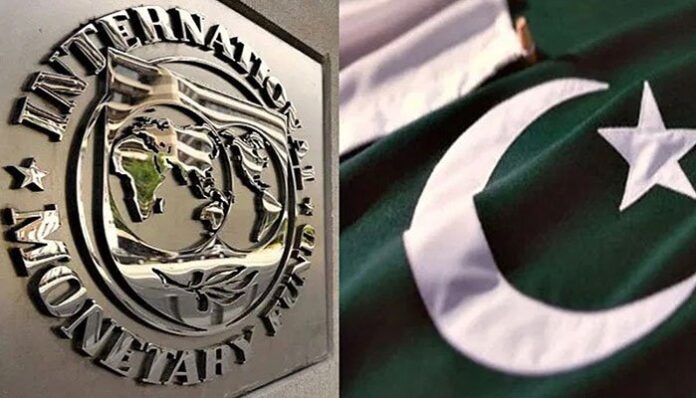The International Monetary Fund (IMF) has expressed optimism in reaching a staff-level agreement (SLA) with Pakistan, according to a statement by the Finance Ministry that quoted IMF Director Middle East and Central Asia Department Jihad Azour after a meeting with the Pakistani delegation that attended the IMF/World Bank Spring meetings in the United States.
Federal Minister for Finance and Revenue Senator Mohammad Ishaq Dar joined the meeting virtually from Islamabad, according to the statement.
Finance Minister Senator Mohammad Ishaq Dar attended IMF/World Bank Spring meetings via Zoom from Islamabad with high level IMF team headed by Mr. Jihad Azour Director IMF. They discussed progress on IMF program and implementation of Prior Actions. (1/2)… pic.twitter.com/bel7gcWoma
— Ministry of Finance (@FinMinistryPak) April 12, 2023
Azour expressed his confidence that the SLA would be signed soon, followed by the IMF Board’s approval. This statement provides hope for Pakistan, which is in dire need of economic stability.
Azour encouraged Pakistan to continue making progress in various sectors and to complete the program on time, adding that “IMF will play its positive role in bringing economic stability in Pakistan.”
Pakistan has already fulfilled all prior actions necessary to secure the IMF loan tranche, and the delay in the program is due to commitments from friendly countries. With Saudi Arabia having already committed $2 billion in funds, sources suggest that the United Arab Emirates (UAE) will also provide $1 billion to Pakistan by the end of the week. These funds are part of a $6.5 billion bailout package that the IMF approved in 2019, which is critical for Pakistan to avoid defaulting on external payment obligations.
The agreement will also unlock other bilateral and multilateral financing avenues for Pakistan to bolster its foreign exchange reserves, which have dwindled to four weeks’ worth of import cover. The agreement would help the country steer out of a balance of payment crisis, which is currently affecting the nation’s economic prospects.
In the face of a dollar shortage, Pakistan’s growth forecast has been revised downward by the IMF to 0.5% from the previous estimate of 2%. The dollar shortage has resulted in supply chain disruptions and companies suspending production, leading to a gloomy economic outlook for the country.
During the meeting, both sides discussed progress made with the ongoing IMF program and the implementation of prior actions, especially those discussed during the IMF mission’s visit to Pakistan. The finance minister shared that due to local commitments, Prime Minister Shehbaz Sharif had asked him to remain in Pakistan, causing him to cancel his scheduled visit to Washington, DC.
Dar informed the IMF team about the economic challenges faced by the country and the government’s vision for achieving macroeconomic stability. He also assured the IMF that all prior actions for the ninth review under the Extended Fund Facility had already been completed, and that the government is fully committed to fulfilling its obligations as agreed with the IMF.
























